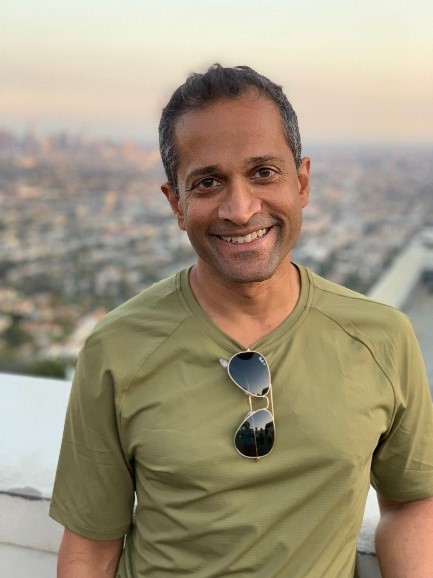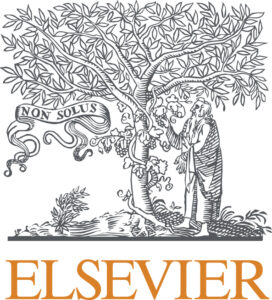Katherine J. Kuchenbecker

Haptics and Physical Human-Robot Interaction
Time: Tuesday December 14, 2021, 14:35-15:35 UTC (TuSP1)
A haptic interface is a mechatronic system that modulates the physical interaction between a human and their tangible surroundings. Such systems typically take the form of grounded kinesthetic devices, ungrounded wearable devices, or surface devices, and they enable the user to act on and feel a remote or virtual environment. I will elucidate key approaches to creating outstanding haptic interfaces by showcasing examples of my team’s research on both kinesthetic and wearable devices. I will then transition to talking about physical human-robot interaction (pHRI), where the engineered system acts as a social agent rather than a tool. In addition to inventing tactile sensors, we have developed and evaluated methods that allow a robot to learn dynamic physical interactions from demonstrations. We also created HuggieBot, a custom robot that uses visual and haptic sensing to give good hugs. Being held in the arms of a robot highlights the potential social and physical consequences of well-designed control systems and decision-making algorithms. Along the way, I will also share suggestions on recruiting and supporting a diverse team of researchers.
Katherine J. Kuchenbecker is a Director at the Max Planck Institute for Intelligent Systems (MPI-IS) in Stuttgart, Germany, where she leads the Haptic Intelligence Department. She earned her Ph.D. at Stanford University in 2006, did postdoctoral research at the Johns Hopkins University, and was an engineering professor in the GRASP Lab at the University of Pennsylvania from 2007 to 2016. Her research blends robotics and human-computer interaction with particular foci in haptics, teleoperation, physical human-robot interaction, tactile sensing, and medical applications. She delivered a TEDYouth talk on haptics in 2012 and has been honored with a 2009 NSF CAREER Award, the 2012 IEEE RAS Academic Early Career Award, a 2014 Penn Lindback Award for Distinguished Teaching, and various best paper, poster, demonstration, and reviewer awards. She co-chaired the Technical Committee on Haptics from 2015 to 2017 and the IEEE Haptics Symposium in 2016 and 2018. She is the spokesperson for the International Max Planck Research School for Intelligent Systems (IMPRS-IS), a large Ph.D. program jointly operated by MPI-IS and the Universities of Stuttgart and Tübingen.
Girish N. Nair

Counting Bits in the Sense-Perceive-Act Cycle
Time: Tuesday December 14, 2021, 14:35-15:35 UTC (TuSP2)
Information theory provides a powerful framework for finding fundamental bounds in many areas of science and engineering. Using the common currency of bits, it enables the complexity of a broad range of different systems to be evaluated and compared. This talk is motivated by real-time autonomous navigation problems, in which high-dimensional state variables and measurements (e.g. vision) must be processed with low latency and high reliability. This can challenge the communication and computational capabilities available onboard, with adverse impacts on closed-loop performance. The aim of this talk is to explain how such impacts can be understood in terms of bits.
The first part considers partially observed Markov decision processes, and investigates measures of uncertainty based on the entropy of the state trajectory. Such measures are relevant for persistent navigation and localization problems, since they capture the minimum internal cost, in bits, of storing the belief of an agent about where it is and was, given what it has seen and done. In robotics, (conditional) trajectory entropy has previously been dismissed as intractable, due to the appearance of the entire trajectory in the nonlinear entropy functional. It is shown that, surprisingly, trajectory entropy can be put into convenient stage-additive forms that allow solution by standard techniques. In simulations, the optimal policies that arise are qualitatively and quantitatively different from those produced by previous entropy or information-based approaches, and produce trajectories reminiscent of the motion of some animals.
The second part of this talk focuses on linear models of motion. By adapting universal performance bounds from bit-rate-limited control theory, unexpected fundamental trade-offs are obtained between processor speed, measurement resolution, and sampling rate, in the presence of disturbances. The implications for vision-based autonomous navigation with integrator dynamics are discussed.
Girish N. Nair was born in Malaysia and is a Professor with the Dept. of Electrical and Electronic Engineering at the Uni. of Melbourne, Australia. He is a Fellow of the IEEE (2018) and has received several prizes, including the CSS George S. Axelby Outstanding Paper Award in 2014, a SIAM Outstanding Paper Prize in 2006, and the Best Theory Paper Prize at the UKACC Int. Conf. on Control, Cambridge Uni., in 2000. From 2015 – 2019 he was an Australian Research Council Future Fellow, and from 2019 he is the Principal Australian Investigator of an Australia-US Multidisciplinary University Research Initiative project, involving four Australian universities collaborating with Boston Uni. and MIT. He has served as an Associate Editor for the IEEE Trans. Automatic Control from 2011-1015, and for the SIAM Journal on Control & Optimization from 2006 – 2011. He was the finance chair for the IEEE CDC in Melbourne, 2017, a vice-program chair for the 6th IFAC Workshop on Estimation & Control in Networked Systems, Tokyo, 2016, and sponsorship chair for the 2021 IEEE International Symposium on Information Theory. His interests are in classical and nonclassical information theory as applied to problems in control and estimation.
Lorenzo Marconi

The "Internal Model Principle" Between Mathematical and Conceptual Perspective
Time: Wednesday December 15, 2021, 14:35-15:35 UTC (WeSP1)
“You only learn the shape of the river; and you learn it with such absolute certainty that you can always steer by the shape that’s in your head, and never mind the one that’s before your eyes” (Mark Twain, apprentice as a Mississippi river pilot, 1983).
This Twain’s intuition hides the well-known Internal Model Principle, a paradigm for any learning or adapting process. Creating, storing and updating an internal representation of the outside world is what permits an agent (e.g. a human being, an animal, an organism or a robot) to engage with the surrounding environment and smoothly operate in it, by taking advantage of earlier experiences and yet taking into account deviations from the nominal context and uncertainties never experienced before. It explains how humans and animals can operate safely in an energy efficient way, in some cases allowing them to successfully accomplish complex tasks in presence of limited computational and sensory capabilities.
The talk addresses the subject from several perspectives. I will start by overviewing how internal model principles are conceptually cast in many fields of science, ranging from neuroscience, biology, and cognitive science. Then, I will introduce the control community formalism, which more than others was successful in abstracting and making the concept rigorous. The presentation will stand on the pioneering contributions given for linear systems in the early 70s, which formalized Twain’s intuition with the paradigm that any robust regulator necessarily incorporates a model of the dynamics generating all the ideal steady state control signals associated to the perfect execution of the task. By riding on this principle, I will review how the concepts of ”model”, “robustness”, “steady state”, “incorporation”, “perfect execution” and “task” have been developed and refined during the last 30 years of research for continuous-time and hybrid systems. A special emphasis will be reserved to nonlinear dynamics for which I will present recent research outcomes. The talk will end with some open research challenges on the subject showing that Twain’s ability to navigate the Mississippi river eyes-closed has still many aspects not fully captured by systems theory.
Lorenzo Marconi graduated in 1995 in Electrical Engineering from the University of Bologna, where he obtained his PhD in 1998. Since 1999 he has been a faculty member at the Department of Electronics, Computer Science and Systems at University of Bologna, where he is Full Professor since January 2016.
He has held visiting positions at various academic/research international institutions. He is co-author of more than 250 technical publications on linear and nonlinear feedback design published on international journals, books and conference proceedings. He is also co-author of three international monographs.
In 2005, he has been awarded jointly by Elsevier and the International Federation of Automatic Control (IFAC) for the best paper published in the period 2002-2005 on “Automatica”. He is also the recipient of the 2014 IEEE Control Systems Magazine Outstanding Paper Award for the best paper published in the period 2012-2013 and of the 2018 O. Hugo Schuck Best Paper Award assigned by the American Automatic Control Council for the best paper presented at the 2017 American Control Conference. He is Fellow of IEEE for “contributions to feedback design of nonlinear systems and unmanned aerial vehicles”.
He chaired the IFAC Technical Committee on “Nonlinear Control Systems” from 2011 to 2017 and he is member of the IEEE Technical committee on “Nonlinear Systems”. He was the chair of the International Program Committee of the 8th IFAC Symposium on Nonlinear Control Systems (NOLCOS) in 2010.
He served as an associate editor of the main international journals in the field of control, such as Automatica, IEEE Transaction on Automatic Control, and IEEE Control Systems Technology. He is now a Senior Editor of the IEEE Transaction on Automatic Control.
His current research interests include nonlinear control, output regulation and stabilisation of nonlinear systems, control of autonomous aerial vehicles, robust control, fault detection and isolation, fault tolerant control.
Karen Rudie

How Discrete-Event Systems Can Keep Secrets Secret
Wednesday December 15, 2021, 14:35-15:35 UTC (WeSP2)
The control theory of discrete-event systems (DESs) is a modeling framework for capturing the ordering of events or actions. Discrete-event systems modeling can be complementary to traditional continuous-time systems modeling or can be used alongside or in concert with continuous-time modeling in hybrid systems. Since decision-making is tantamount to prescribing which actions should or should not happen or which actions should happen before others, the body of work in DES theory is well-positioned to allow us to tackle security problems in cyber-physical systems. In this talk we present different approaches in DES control theory that address various problems in the security of systems and networks.
In particular, we examine the notion of opacity, which is the property of ensuring that secret states or secret sequences of events are not discernible from non-secret states or events to a hostile agent. We also look at cases where systems are attacked by adversarial agents that manipulate sensor outputs (i.e., event occurrences generated by a plant) so that a supervisor (i.e., a DES controller) is fooled into thinking the system is in some state that it is not in. We discuss the challenges of modeling security and secrecy problems using discrete-event systems.
Karen Rudie is a Professor at Queen’s University (Canada) in the Department of Electrical and Computer Engineering, with a cross-appointment to the School of Computing. She received her Ph.D. in 1992 from the University of Toronto, in the Systems Control Group. In 1992–93 she was a postdoctoral researcher at the Institute for Mathematics and its Applications, Minnesota. From 2004–2006 she was an IEEE Control Systems Society Distinguished Lecturer. She has served on the editorial board of the Journal of Discrete Event Dynamic Systems (since 2000), where she is currently a Department Editor, and has served as an Associate Editor for IEEE Transactions on Control Systems Technology (2015-2020), IEEE Transactions on Automatic Control (1996–1999), and IEEE Control Systems Magazine (2003). She is a Fellow of the IEEE. Her research focuses on the control of discrete-event systems.











